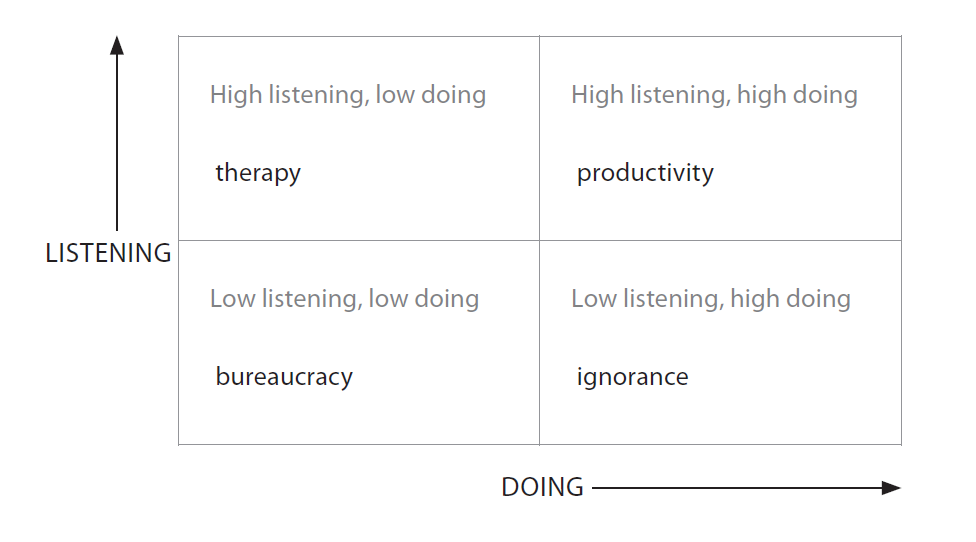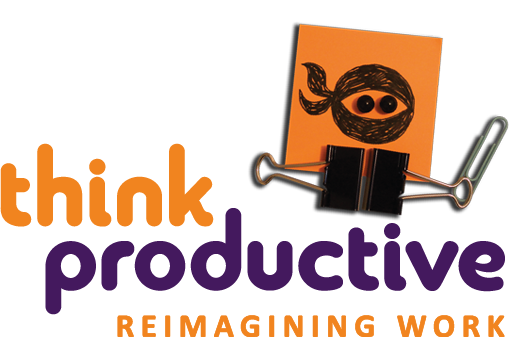When talking about meetings, it’s important to shift our focus from the individual to the group. We arrive at meetings as individuals and we leave as individuals, but the work of the meeting is done in a group.
At both the individual and group level, there exists an important tension. It’s the tension between listening and doing.

Treading the fine line to ensure sustainable, longer-term, maximum productivity isn’t easy.
We need to consciously spend some of our time and attention on understanding those around us, understanding what’s happening strategically and listening to how others perceive the things we think are valuable. Likewise, there are times when we just need to get on with it. And there are a million and one people looking to drag you into unproductive meetings.
 How would you describe your own time and attention in relation to the others around you?
How would you describe your own time and attention in relation to the others around you?
> Are you spending all your time in meetings and wishing you could just be left to get things done on your own?
> Or are you firing, all guns blazing, but failing to gain the support, reassurance and feedback to ensure maximum productivity and impact?

And how would you describe your organisation’s culture with regard to meetings?
> Do you crave more communication and feel like no one is listening to you?
> Or are you regularly finding yourself bored out of your skull in room 3?
> Or perhaps you think your organisation is treading the ‘attention tension’ pretty well, getting the balance just about right?
Recognising your attention tension will help you cut down the time spent in meetings by eliminating some of the unnecessary ones and offering suggestions of alternatives ways to provide the listening and involvement we traditionally rely too heavily on meetings to provide. And when we do need to meet? Trust me, your meetings could be so much better.
Like this? Try these
Book one of our Effective Meetings workshops
Where you go wrong in meetings thinkproductive.co.uk
Running Effective Meetings – Communication Skills Training MindTools.com
Get More Out of Your Meetings: Tips for Leading More Productive & Efficient Meetings grasshopper.com
Functional Productive Meetings Require Constraints Lifehacker

I really like your ‘Listening/Doing’ schematic, and I think it demonstrates why techniques such as Sketchnoting can be helpful in meetings as they build a bridge between the ‘listening’ and ‘doing’ bits.
Too often meetings get a bad press and are dismissed as ‘ineffective’, but like any other skill in your career they require training and development – the challenge is that in meeting environments 1 ‘untrained’ participant can bring the effectiveness of the whole meeting down.
great post!